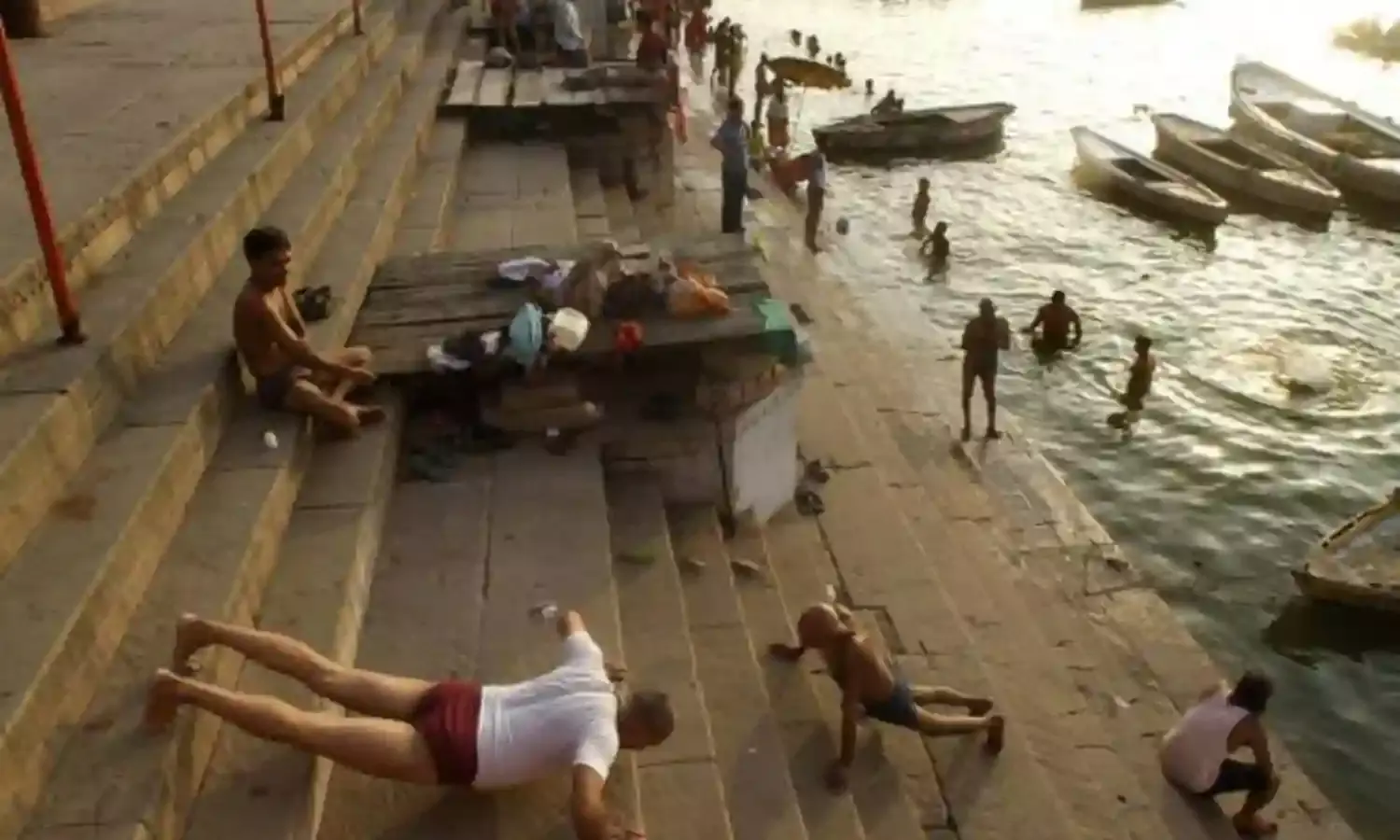Varanasi: From Spiritual Hinduism to Corporate Hindutva
Meanwhile the Ganga remains polluted as ever, if not more

If one may begin with a caveat: like any other town or city in India, Varanasi is a place where people of all classes engage in economic transactions of myriad kinds, where moneys change hands on a vast scale, and issues of day to day living press as hard on the inhabitants as on Indians anywhere else.
It is a pity that the dire straits in which the labouring classes in Varanasi, such as the disenfranchised weavers of the legendary Banarsi sari, find themselves owing to the policies of demonetisation and the imposition of an ill-conceived Goods and Services Tax, are very little in the public discourse or the electoral campaign now rampaging through the ancient city.
Historians of culture will tell us that if Varanasi has over centuries occupied a place in global consciousness, it is due to the very exclusive place that Kashi occupies in the spiritual landscape of India. Many accounts tell us how this oldest of cities (as old perhaps as Damascus) over which the legend of Lord Shiva looms as a living and all-consuming presence in the city’s composite profile, has always exuded a mystique –
Wherein life and death, the now and hereafter, the high and the low, men and women in debate, musicians, itinerant or classical, have lived and celebrated the aura of a seamless consciousness about time and space, heaven and hell. A philosophical arena in which fakirs and dervishes, sadhus and saints, daring subaltern poets and geniuses and Brahminical overlords –
All have contended to produce a flowering of spiritual knowledge, without much thought to the primacy of power centres or the architectural premodernity of the city’s dwellings, bylanes and squares (chhabutras) and without seeking competition with the swanky places of a deracinated world.
And the most precious of miracles Kashi has exemplified as a living and deeply unselfconscious phenomenon, has been to teach how a truly spiritual place is necessarily also the most truly secular, in everyday human interactions and evaluations.
Where else but in Kashi could a Bismillah Khan have been the most revered inhabitant? Or a Kabir been as high in the estimation even of his antagonists as a Tulsi?
But alas, Kashi’s incomparable spiritual riches are now to be transformed into the tinsel poverty of a soulless modernity. What could be a greater insult to Varanasi, than to be told that it is not good enough and must be made into a Kyoto?
But here is what needs to be understood. The transformation sought to be effected upon Kashi must willy nilly rob the City of Cities of the raison d’etre for which the world has flocked to it over centuries of seeking.
Why would anyone come to Kashi to see a Kyoto?
Tragically yet cannily, this new devotion to ‘improving’ Varanasi under saffron inspiration actually derives from the interests of capital – to turn the ancient city and her spirituality into a marketable, touristy milch cow, informed no longer by the deepest consideration of mortality and immortality, but by the conjoint greed of corporate economics and Hindutva politics.
This bastardised modernity derives from the driving hegemony of a new propertied vanguard, and defines a movement akin to that of Christianity from her belief in salvation by ‘good works’ and meditation, to one which with Calvin holds that ‘whereas man has free will in matters temporal, he has no free will in matters spiritual’ and, salvation being ‘predetermined’ is best indicated by one’s market-status in this life.
Clearly, this trumpeted infliction upon Kashi, though it masquerades as a Hindu project, in fact cancels the essential condition of Kashi’s Hindu-spiritual being. These metropolitan efforts will disembowel the deeply interwoven strands of her traditional craft and small scale economies, and the social intermeshings these have nursed over centuries of internecine brutalities in other places.
Meanwhile, the one transformation that Varanasi most richly demands remains botched, and sanctimonious protestations to the contrary, the waters of the Ganga remain as polluted as ever, if not more.
Cover photograph Courtesy The Hindi



